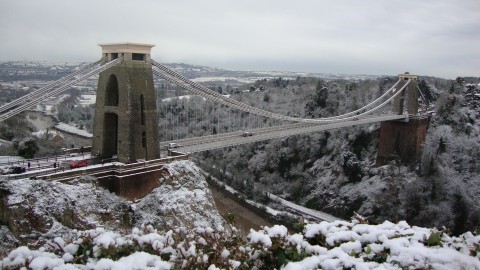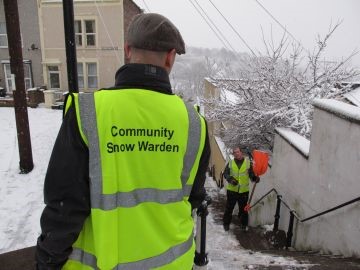20. 03. 2018
‘BEAST FROM THE EAST’ VISITS BRISTOL ON THE FIRST DAY OF SPRING
BY John Stevens, Bristol City Council
On March 1st the ‘Beast from the East’ swept across the UK bringing with it sub-zero temperatures, heavy snowfall and treacherous icy conditions. Bitterly cold Siberian winds brought in Arctic weather and with it much widespread disruption. Caused by a sudden stratospheric warming above the North Pole the extreme cold and blizzard conditions experienced are relatively uncommon in the UK, particularly at this time of year. Due to its rarity the resilience of critical services is perhaps not quite as robust as other countries more prone to severe cold. Travel chaos trapped people in cars along long stretches of roads that were made inaccessible. Power cuts and the breakdown of mobile phone services were another effect. Following the thaw further problems were seen such as flooding of properties from snow melt on roofs, burst water pipes and a loss of water supply. Due to a lack of deliveries getting through food shortages in shops were also commonplace.
In Bristol, one of the three RESCCUE research sites, in the City Council (BCC) the Severe Weather team conducted various coordinated responses to ensure key services remained operational. Such as the Highways team working 24 hours a day for over a week ploughing roads and spreading over 1000 tonnes of grit across the network. 4×4 vehicles were used by the Parks team, to especially help those more vulnerable and in need in the community. The Homelessness teams also had a role to help those most susceptible to the conditions. Linked to BCC 120 volunteer Community Snow Wardens ensured that many of the city’s residential streets and footpaths remained passable.
Following ‘the Beast’ spring seemed to creep through for a few days with milder conditions, but then went straight back to winter again! With another cold snap in mid-March. These irregularities occur from time to time and longer term trends and indicators are far more useful and reliable for climate change predictions into the future. But despite this a greater preparedness for these occasional occurrences to enhance city resilience is still very worthwhile.
Learning from examples elsewhere around the globe could therefore be beneficial for the extreme events, especially if they were to become more frequent.


